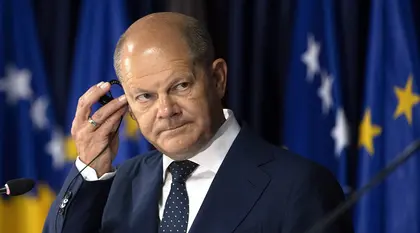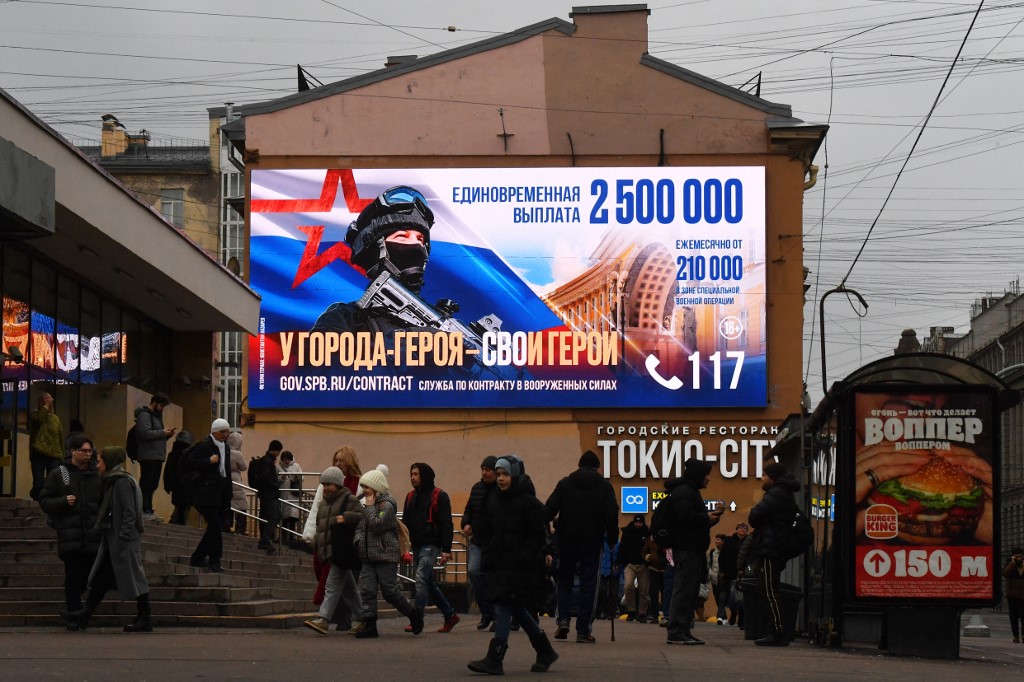In this second part of an exclusive interview Ukraine’s ambassador to Poland, Vasyl Bodnar gives his views on frontline needs for air defense and artillery ammunitions, rebuilding Ukraine’s infrastructure, and handling the future of millions of refugees seeking a life abroad, and the much talked about of late peace plan floated by the White House’s envoy Lt. Gen. Keith Kellogg.
As the Ambassador told Kyiv Post’s Michał Kujawski, he sees Poland’s viewpoint on any peace plan to be more in agreement with Ukraine’s “Victory Plan” as outlined by President Volodymyr Zelensky, than with Trump’s so-far unspecified conditions. Poland will also be instrumental in helping to rebuild Ukraine’s infrastructure and economy, based on its experience in the same areas in the last few decades.
JOIN US ON TELEGRAM
Follow our coverage of the war on the @Kyivpost_official.
Also in Part 2 of this exclusive in-depth conversation, he shares his insights on the general role of international partners like Poland in Ukraine’s future, and Kyiv’s evolving approach to its global diaspora.
MK: What does Ukraine need the most today?
VB: First of all, air defense and missile defense systems, as well as ammunition. The daily consumption is enormous. Maintaining the frontline is a priority for us and a condition for winning this war, regardless of when or how any peace talks might take place.
Our position is “nothing about Ukraine without Ukraine.” – Ambassador Vasyl Bodnar
MK: Talks are being mentioned more and more often. Mike Waltz, advisor to President Trump on security matters, recently spoke about the possibility of starting negotiations. A similar tone is expressed by General Keith Kellogg. Are talks already underway, or is it still too early to discuss anything?

25 Million Hits for Musk’s Repost of Fake ‘USAID Paid Hollywood Stars to Visit Ukraine’ Video
VB: Peace talks are not taking place. We are, of course, in constant contact with the American side and conducting consultations.
Our position is “nothing about Ukraine without Ukraine.” We are guided by the strategy of “peace through strength,” shared by many people around President Trump, which is more effective than yielding to the aggressor. We emphasize this when communicating with the American side.
MK: The United States is not the only country interested in participating in peace talks. Among others are India, China, and Turkey. Who could participate in such talks, and what format could they take? Looking from the perspective of Warsaw and in relation to Poland, would it be invited?
VB: Poland has been supporting Ukraine from the very beginning of the war. Its voice is significant on the international stage. Ukraine has proposed its own formats so far - President Zelensky’s peace formula and the “Victory Plan,” which includes, among other things, NATO membership.
We will observe whether talks with Russia are even possible and in what format. We have proposed expanding the format to include countries outside the Western world, as was already the case during the first peace summit held in Switzerland in 2024. Engaging more countries and their interests increases the guarantee of maintaining peace.
This is not just about formal participation. Involvement of countries like China or Turkey would increase pressure on Russia and could curb its aggressive actions. It must be remembered that it is not Ukraine but Russia that is the aggressor, and it is Russia that has violated the international order and is trying to control the situation in various regions through chaos.
Countries like China understand this perfectly. Turkey, on the other hand, is effective in counteracting Russia, as we have seen in Syria.
MK: Does the peace formula you mentioned, Ambassador, include Poland or individual European countries as partners in these talks, or perhaps the European Union as a whole?
VB: We anticipate the participation of individual countries as subjects of international law. We are pleased that Poland is taking part in the talks, participated in the summits, and is involved in the work of the working groups.
We count on Poland’s continued support. I cannot say if these will be direct negotiations, as talks with Russia today are like negotiating with a lion when you’re in its jaws. Our focus is on strengthening defense. Only “peace through strength” will bring stability to Europe.
MK: One of the topics discussed by President Zelensky during his meeting with Prime Minister Tusk was the issue of rebuilding Ukraine. How will this process unfold, and what will Poland’s role be in it?
VB: The role will be enormous. Poland is a fairly large and strong country with a strong and developed economy. Polish companies are already present in Ukraine, and their turnover is of significant scale. The value of trade exchange is about 11 billion euros annually, with Polish exports exceeding imports. This is due to Ukraine’s high needs.
Our goal is also the development of infrastructure - border crossings, roads, railways, and later airports. The participation of Polish companies is welcomed. Production is still taking place in Ukraine – many Polish companies are investing in the Ukrainian economy, and this happens reciprocally – Ukrainian companies operate in Poland, bringing benefits to the Polish economy. We are mutually interwoven.
This current partnership will bear fruit in the reconstruction of regions affected by Russian attacks. We are talking about critical infrastructure, construction, and road infrastructure.
Great opportunities also lie in modernization investments, such as water and environmental infrastructure in cities. Ukraine needs this, and Poland’s experience is excellent. I remember when I worked in Poland as a diplomat from 2006 to 2010 – from the perspective of infrastructure and economic development, Poland is a completely different country, and its experience is very much needed by Ukraine.
MK: It’s hard to talk about rebuilding a country after such an exhausting and destructive war without people. Millions of refugees have left Ukraine. Not long ago, the Verkhovna Rada appointed Oleksii Chernyshov as Deputy Prime Minister and Head of the newly created Ministry of National Unity.
In January, the Prime Minister visited Warsaw and announced that the Ukrainian authorities would not apply any measures or coercion to bring citizens back to the country. What will Ukraine’s policy be towards Ukrainians living abroad?
VB: We are shaping the communication policy with Ukrainians abroad. Importantly, not only with Ukrainian citizens but also with the Ukrainian community, which, in addition to the 7 million refugees, includes around 20 million people of Ukrainian descent.
During the Prime Minister’s visit to Warsaw, we had productive discussions with the Polish government, as well as with the local Ukrainian community and visits to places associated with it. We want to create a hub that will allow Ukrainians to feel the care of the state, communicate with each other, help with integration into Polish society, and assist with returns to Ukraine, including finding work and housing. This is a service-oriented activity of the Ukrainian state.
When Volodymyr Zelensky was elected president in 2019, the idea of creating a “state in a smartphone” emerged. Since 2020, the Diia app has been operational, enabling the use of digital documents. Digitalization has advanced significantly. It currently helps in communication with Ukrainians abroad, including consular matters.
I would like to add that we are increasing the number of consulates, including in Poland. This is important because the largest number of our refugees are in Poland and Germany. Ukrainians are also doing very well on their own; just look at Warsaw and the number of Ukrainian organizations operating there.
They provide basic needs but also contribute to cultural life. These organizations are run by people who are well-integrated into Polish society, familiar with local laws and the language. They don’t feel foreign here. Such actions build bridges.
Our readers can find Part 1 of this exclusive interview with Ambassador Bodnar here.
You can also highlight the text and press Ctrl + Enter










